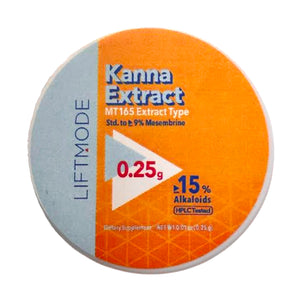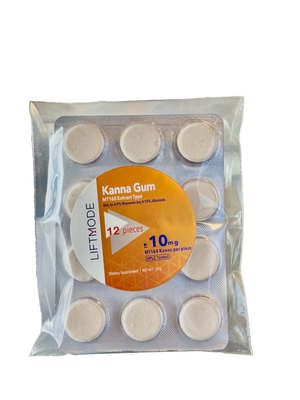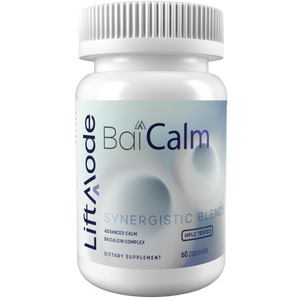1. Is Taurine a plant?
No, Taurine is not a plant. Taurine is a naturally produced chemical compound found in plants and animals. Our human bodies produce Taurine by themselves and it is found especially in the intestines and in bile (stomach acid). Taurine is similar to an amino acid and is used in many energy drinks because of it’s apparent energizing benefits.[1]2. Is Taurine bull testicle juice?
Again, nope! Taurine is not bull testicle juice. Taurine supplements are laboratory-produced compounds and are not animal derived in any way. Even vegans can enjoy Taurine supplements as they do not harm animals in their production. However, like almost every supplement on Earth, scientists have at some point tested Taurine on animals to find out things about it.[2]3. Is Taurine a sugar?
Taurine is an amino sulfonic acid – similar to an amino acid but with an added sulfur-group. It is not a sugar. However, Taurine is often found in energy drinks which contain large amounts of sugar. It is an odorless compound with a melting point of 328 degrees Celsius and a slightly acidic taste. It is slightly acid and is very soluble in water.[3]4. Is Taurine a source of energy?
[caption id=""attachment_1546"" align=""alignright"" width=""298""]5. Is Taurine safe?
Taurine is estimated to have a daily safety limit of 3 grams. Anything under this is safe to use every day. Taurine hasn’t been sufficiently studied at dosages higher than 3 grams per day to be able to know whether it is safe to take in high doses for life.[7] Taurine is a very safe supplement to take and is produced naturally inside your body. It is a dietary supplement and is not intended to treat, diagnose or cure any disease. Taurine supplements may be unsafe for pregnant or breastfeeding women. Please speak to your doctor if you have any underlying medical conditions but would like to use Taurine supplements.6. Is Taurine good for you?
Yes! Taurine is one of the top health supplements available today and is highly underestimated in how important it is for maintaining a healthy body. Scientists recently published a review which looked into all the beneficial roles that Taurine plays in your body and they’ve compiled some astounding facts! Taurine is important for: [caption id=""attachment_1055"" align=""alignright"" width=""300""]- The production of bile in your stomach and digestion of food
- Maintaining stable Calcium levels in your body
- Protecting your cells from damage
- Maintaining healthy eyes
- Maintaining healthy kidney function and hormone levels
- Supporting brain development in children and adults
- Destroying free-radicals and working as an antioxidant
- Carrying electrochemical signals in your brain[8]
7. Is Taurine a functional nutrient?
Taurine is absolutely a functional nutrient! The reasons above show just how functional it is! The most important Taurine functions in your body include helping with physiological processes like maintaining a healthy circulatory system, supporting a healthy immune system, and helping with digestion. Taurine also has important functions in regulating mood and emotional responses as well as cognitive performance.[9]8. Is Taurine good for stress?
[caption id=""attachment_1532"" align=""alignright"" width=""300""]9. Is Taurine a diuretic?
Taurine does not appear to be a diuretic. Many people were confused about Taurine and whether or not it works as a diuretic, so scientists decided to put it to the test. It turns out that the diuretic effects of energy drinks are actually just because of the caffeine (which IS a diuretic). Taurine doesn’t work as a diuretic.[12]10. Is Taurine a cholesterol destroyer?
[caption id=""attachment_1452"" align=""alignright"" width=""300""]Conclusion
In summary, we’ve found that Taurine is a naturally produced amino acid that is effective at a number of very important processes in your body. It has energizing effects and is often combined with caffeine. Taurine is found in animals but Taurine supplements are laboratory-made and not animal derived. Taurine is definitely not bull semen! It is a functional nutrient with beneficial effects in maintaining a healthy circulatory system, healthy hormone levels, protecting your heart, kidneys, and eyes, and supporting brain development. Taurine is also a powerful antioxidant, helps to maintain digestion, and works as a powerful neurotransmitter in your brain.Medical Disclaimer
Not intended to treat, diagnose, or cure any disease or ailment. Please read and fully understand potential adverse effects before using this product. These statements have not been reviewed by the FDA and are not written by a medical professional. Please consult your doctor before using any supplements, especially if you have any medical conditions.
Tristan
B.Sc. in Molecular Biology and Biochemistry Researched & written by Tristan and verified by the Liftmode.com Research Team




